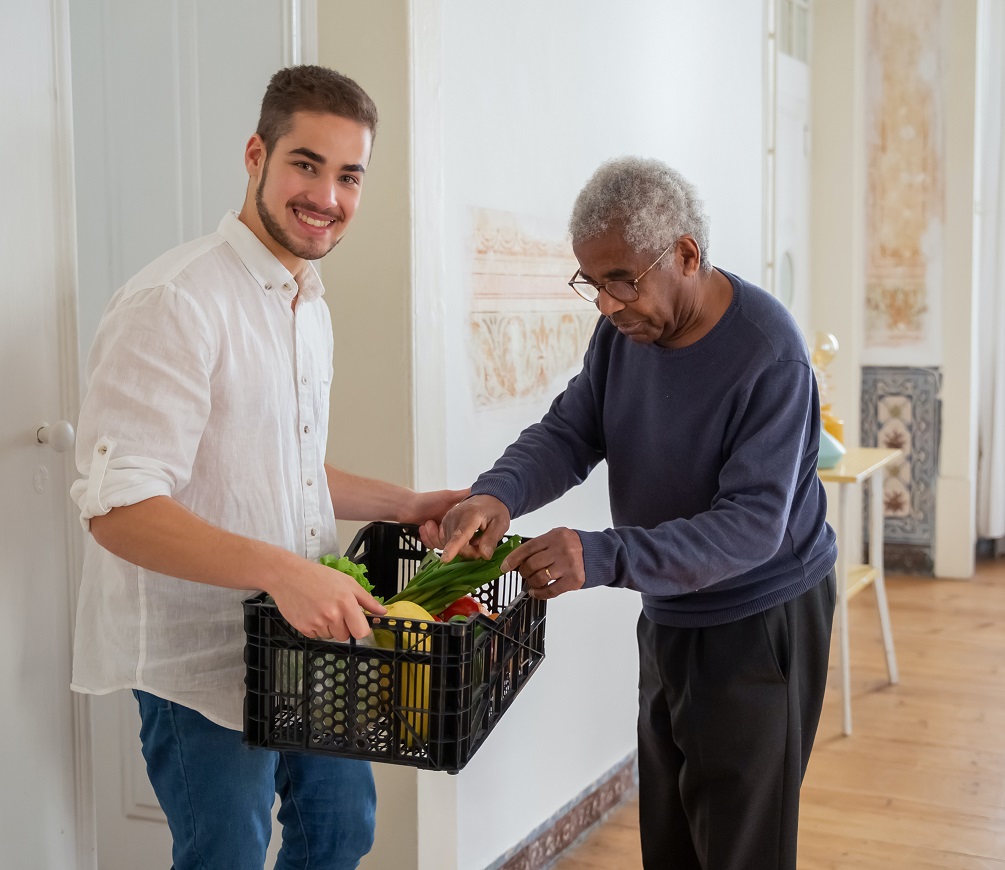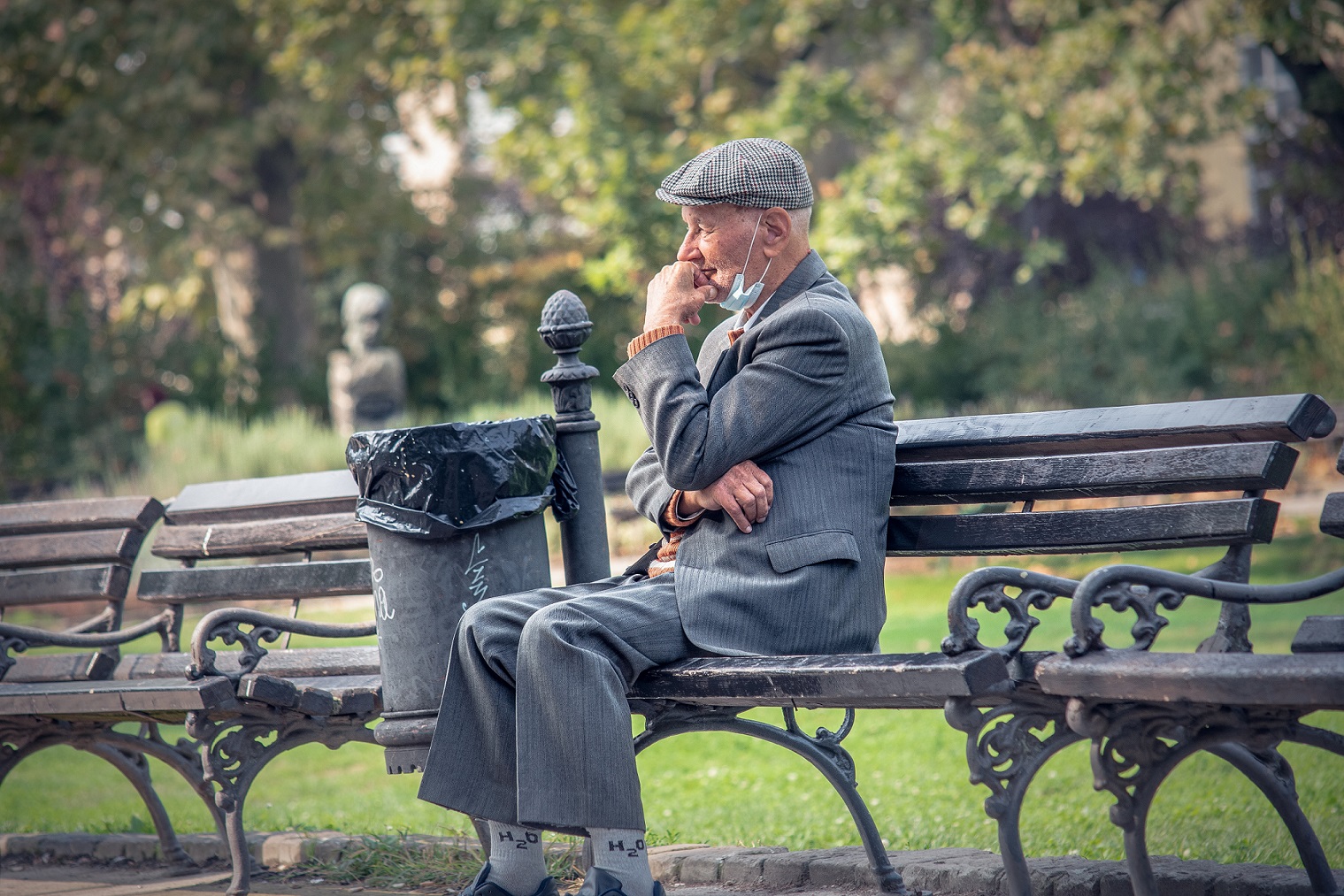As more people have fewer – or no – children, a cohort of kinless seniors will eventually grow old alone, lacking the most accessible caregivers.
During the holiday season, we gather with family and friends to celebrate the return of longer days during the darkest night, the birth of a baby, a miracle, or simply the relief of having made it through another year. For those without families or close friends, however, it can be a time of cold and loneliness. And for kinless seniors, aging alone is more than lonely. It eventually becomes impossible.
Used to be, large families were the ideal, if not the norm. Birth control was, at least officially, limited to thoughts and prayers, but all those hands were needed at the farm. When it came time for the older generations to lay down their tools, there were enough younger people, maybe even an unmarried daughter or two, to care for Mom or Pop in their golden years. That worked for a while, but as life became more urban, more women pursued roles other than wife and mother, and children more expensive and less obligatory for most people, smaller families became the norm. A growing number of people don’t expect to have children at all.
Primatologist Jane Goodall is right about population overshoot (at American levels of resource consumption and waste) being the root cause of a great many problems. The trend toward smaller families is, ecologically speaking, a good thing. While Elon Musk’s tweeted rebuttal (that Goodall’s philosophy is “the death of humanity”) is off base, he comes close to acknowledging the natural result of kinless seniors growing old with fewer young people to care for them.
Therein lies the problem.
According to the National Institutes of Health, “kinless seniors” are defined as adults aged 55 or over, who lack a spouse/partner and biological children. Between 1998-2010, there were 6.6 million American adults in this category, while a smaller number, about 1-3%, also lacked siblings. It may not sound like many, but that’s about a million kinless seniors as of 2019. Because caregiving duties naturally fall first to one’s spouse and adult children, kinless seniors face major challenges finding support as they age, especially later in life. As Dr. Rachel Margolis, a University of Western Ontario sociologist told the New York Times, “Friends and neighbors may help with meals or pick up a prescription, but they’re not going to help you in the shower.” They’re not going to help get you on and off the toilet, either.
Considering the growing crisis, and the fact that the United States doesn’t take especially good care of its elders to begin with, who will step in to make sure kinless seniors, and those with estranged or geographically distant families, receive the care that everyone needs as their ability to live independently inevitably slips away, and it’s no longer safe to live alone?
Waiting for a market-based solution isn’t ideal, since people who couldn’t afford kids probably can’t afford a paid, full time care staff. State funding for elder care is often a target for budget cuts, especially as inequality grows and resources decline, weakening the widespread prosperity that is needed for a reliable tax base. If push comes to shove and hard decisions have to be made, would we take care of children or elders first? (Or cut taxes for the wealthy, hoping for a trickle-down that never puddles?)
There are a few hopeful ideas, especially for those on the younger side of elderhood.

One option is to increase the number of co-living options, like these dorm-like developments in California, built to increase the housing supply for singles working in tech. Residents have their own bedroom areas, but share a common kitchen and living space, with amenities like an honor-based library and planned group activities. Similar living arrangements, tailored to the needs of kinless seniors who would benefit from the social experience as well as the possibility of meeting new friends who could all check in on each other regularly, could increase the quality of life as well as its length. Older adults who lack family and social connections die earlier than those who are less isolated, although, again, affordability can be a real barrier.
For older people still living in their own home, programs that pair them with younger adults, usually students looking for lower rent in exchange for help around the house, could be a solution. One such program in Vancouver, Canada, proved to be a godsend for both parties and is well worth emulating anywhere the need exists, and there is a way to monitor the situation for trustworthiness.
Unfortunately, cohousing mates “aren’t going to help each other in the shower” either, and better solutions need to be found for those with more severe care needs, such as dementia.
Having fewer children, or none at all, is an effective way to start bringing the consumption footprint of our species back within ecological bounds, but it needs to occur in a way that is fair not only to the younger generations who benefit, but to the older people who may be the last surviving member of their families. One hopes that a solution can be worked out as the torch is passed between the generations.
Related: All the Lonely People


Join the conversation!